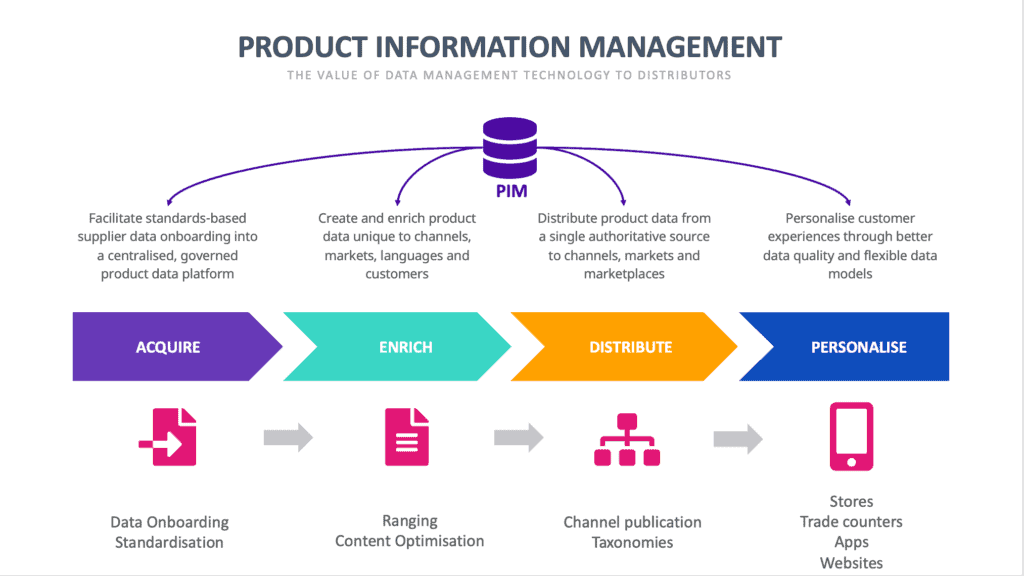Onboarding: The supplier-vendor relationship is smoothened using a PIM onboarding portal. These facilitate supplier compliance with content protocols as well as allowing ingested supplier product data to be standardised.
Centralisation and governance: In too many cases, it’s IT which takes the lead (by default or by design) on master data management (MDM). What a PIM provides is a repository for all product content which involves all areas of the organisation in a coordinated and integrated way. Product data governance tools determine high standards of quality and consistency while at a tactical level, TTM for new items can be shortened due to efficient data deployment. This all adds a company-wide agility enabling rapid responses to the demands of a constantly evolving digital marketplace. Thus, you have generated a golden product record for each individual product – underpinned by a data governance framework, the user can be entirely certain that it is a complete, accurate and up to-date data set.
Content creation and enrichment: a PIM offers a user interface which permits the creation of product content, product experiences, search tags and more. These are unique to each market segment and channel. Enrichment tools can convert product content from the merely required to the positively engaging. Enriched content adds tangible value by offering a product experience which will influence purchasers positively.
Distribution: PIM tools distribute a portfolio of product information to an ever-growing range of e-Commerce endpoints; websites, mobile devices, touchscreens internet-connected devices or marketplaces. PIM tools interpret and execute the unique content requirements of each channel and also push content to reseller platforms.
